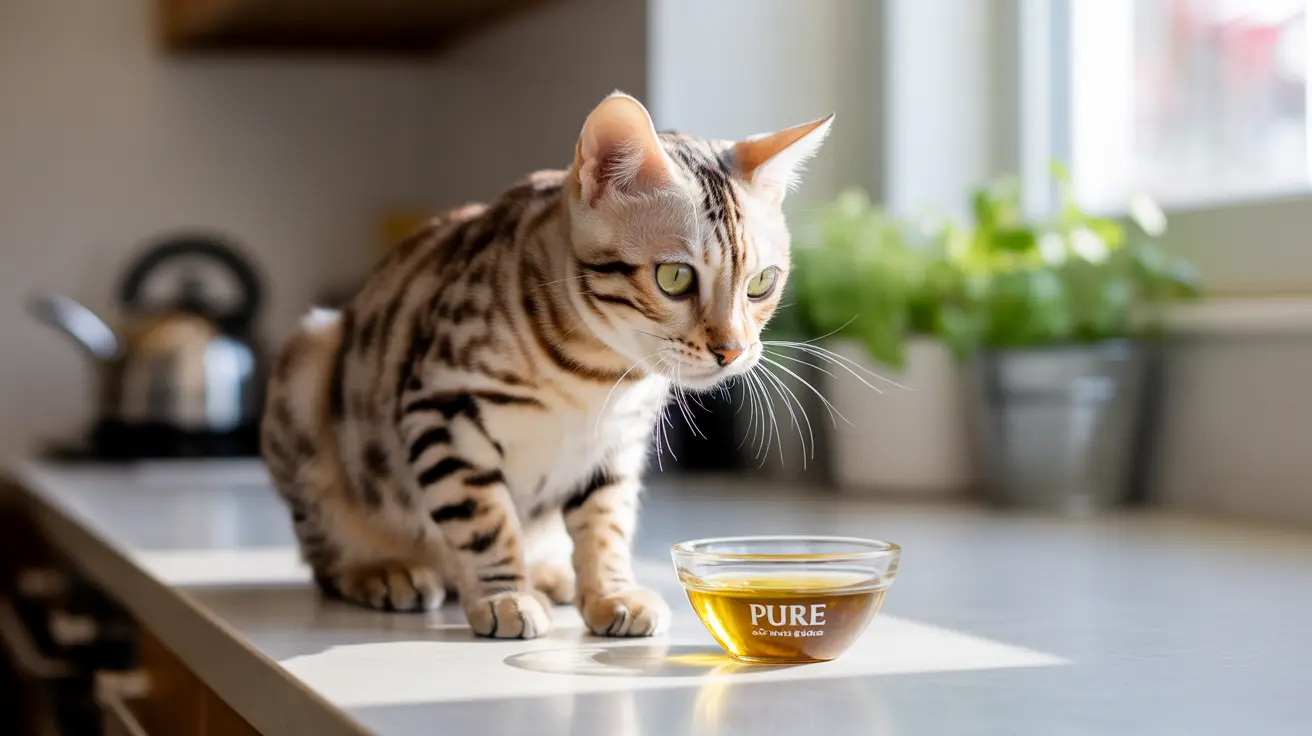Understanding Sunflower Oil and Its Nutritional Value
Sunflower oil is a plant-based oil rich in omega-6 fatty acids, particularly linoleic acid. It also contains beneficial nutrients like vitamin E, which acts as an antioxidant, and vitamin K, which supports proper blood clotting. While these nutrients can be beneficial, it's important to remember that cats are obligate carnivores and primarily need animal-based fats in their diet.
Potential Benefits of Sunflower Oil for Cats
Skin and Coat Health
When used appropriately, sunflower oil can help improve your cat's coat condition and skin health. The omega-6 fatty acids can contribute to a shinier coat and may help alleviate minor skin irritations. However, fish oils are generally more beneficial due to their omega-3 content.
Hairball Management
Some pet owners use sunflower oil as a natural lubricant to help prevent and manage hairballs. The oil can help ease the passage of hair through the digestive system, though specific hairball remedies might be more effective.
Important Safety Considerations
Serving Size and Frequency
If you decide to give your cat sunflower oil, moderation is crucial. A few drops to a quarter teaspoon is typically sufficient, and it should not be given daily. Remember that one tablespoon contains about 124 calories – nearly half of a 10-pound cat's daily caloric needs.
Risk Factors
Cats with certain health conditions should avoid sunflower oil entirely:
- Overweight or obese cats
- Those with pancreatitis
- Cats with diabetes
- Seniors with decreased fat digestion efficiency
- Cats with sensitive digestive systems
Best Practices for Using Sunflower Oil
When introducing sunflower oil to your cat's diet:
- Use only pure, additive-free sunflower oil
- Start with minimal amounts
- Monitor for any adverse reactions
- Consult with your veterinarian first
- Never use it as a replacement for prescribed medications or treatments
Better Alternatives to Consider
While sunflower oil is safe in small amounts, several alternatives might be more beneficial for your cat:
- Fish oil (especially salmon oil)
- Krill oil
- Commercial supplements specifically formulated for cats
These options typically provide better omega-3 to omega-6 ratios and are more suited to feline nutritional needs.
Frequently Asked Questions
Is it safe to give my cat sunflower oil and how much is appropriate?
Yes, sunflower oil is safe for cats in very small amounts (a few drops to ¼ teaspoon). However, it should only be given occasionally and with veterinary approval, especially if your cat has any health conditions.
What are the main health benefits of sunflower oil for cats' skin and coat?
Sunflower oil contains omega-6 fatty acids and vitamin E, which can help improve coat shine and skin health. However, fish oils are generally more beneficial due to their omega-3 content.
Can too much sunflower oil cause health problems or digestive issues in cats?
Yes, excessive sunflower oil can lead to digestive upset, diarrhea, and weight gain. It's particularly problematic for cats with pancreatitis, diabetes, or other health conditions.
How should I introduce sunflower oil into my cat's diet safely?
Start with minimal amounts (a few drops) and monitor your cat's reaction. Always use pure, additive-free oil and consult with your veterinarian before starting supplementation.
Are there better alternatives to sunflower oil for improving my cat's coat and overall health?
Yes, fish oils (especially salmon oil) are generally better alternatives as they provide essential omega-3 fatty acids that are more beneficial for feline health. These oils are more closely aligned with a cat's natural nutritional needs.
Conclusion
While cats can safely consume sunflower oil in small amounts, it's essential to approach supplementation with caution and always under veterinary guidance. For most cats, fish-based oils provide better nutritional benefits and are more aligned with their natural dietary needs. Remember that any dietary changes should be made gradually and with careful monitoring of your cat's response.






